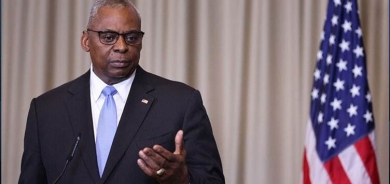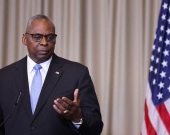Remembering Kirkuk's Jews

Having previously lived in relative peace and prosperity, after the beginning of World War II Iraq became a dangerous place for Jews who had lived there most of their lives.
The rise of a pro-Nazi regime after 1941, the 1947 declaration of the UN's Partition Plan for Palestine and regional instability led to the persecution and killing of Jews across the country and the Middle East.
After initially banning travel to Israel, out of fear of strengthening the newly established state of Israel, the Iraqi government allowed Jews to travel on the condition of relinquishing their Iraqi citizenship and property.
The majority of the community emigrated from Iraq between 1949 and 1950, known as "Azra and Nahima". But further migration was prevented at the beginning of the 1950s and out of 135,000 Jews living in Iraq (2.6% of the population), the number had dwindled to just 15,000 (0.1%) by 1951.
In Kirkuk, Jews lived in the famous Archaeological Castle, which remains are still present until now, and their homes could also be found around the castle before leaving them in the fifties.
The castle later became a place of pilgrimage for tourists, who wanted to visit the tombs of three Jewish prophets: Daniel, Hanin and Uzair.
Historical sources indicate that the vast majority of Iraqi Jews lived in cities including Baghdad, Basra, Mosul and Kirkuk, and contributed to the building of Iraq. The first finance minister in the Iraqi government in 1921 was a Jew named Hsagel Sasson.
Najat Hussein, the member of Kirkuk Provincial Council, told AKnews: "Kirkuk is now completely free of Jews. They used to live in the castle and a neighborhood near Beryadi area close to the Kirkuk market was known as the Jews’ neighborhood."
After the "Azra and Nahima" process and after the remaining Jews were prevented from migration, their conditions began to improve after the 1958 coup d'état of the army general Abdul Karim al-Qassim, who eliminated the monarchy and ruled as Prime Minister. He lifted the restrictions on Jews remaining in Iraq and life returned back to normal.
But with the Baath Party coup and Qassim’s death in 1968 and persecution and restriction of Jews by the authorities began once again.
In 1969 a number of traders, most of them Jews, were executed on charges of spying for Israel, leading to the acceleration of the migration campaign of Iraqi Jews which peaked in the early seventies.
After the U.S. invasion of Iraq in 2003 less than 100 Jewish people remained, most of them in Baghdad and the vast majority of whom were the elderly and the infirm.
Sardar al-Jabbari, a history teacher, says the "number of Jews in Kirkuk was not that big if compared to Baghdad, and their presence was limited to the castle in the (Jardaglua) area. Then they migrated and left Kirkuk in the fifties."
Only the memories are left. How nice would it have been if the Jews stayed in Kirkuk and the city included nationalities and religions to be a city of brotherhood?"
"The Jews contributed to rebuilding Iraq and they were well-known in the trade, music, art, singing, politics and agriculture as well."
Historians say that the late singer Salima al-Murad was Jewish, and Ovadia al-Yosef, Rabbi of the Eastern Jews in Israel and the spiritual leader of Shas for Orthodox Jews was born in 1920 in Basra.
Other famous Iraqi Jews include Benjamin al-Ben-Eliezer, Israel's former defense minister, and the famous economist Mir Basri who wrote several books on the Iraqi economy and society.
The Iraqi Jews, who are famous in the field of music are composer Jacob Ezra, senior musician Saleh al-Kuwaitim, Azori al-Awad, a musician on lute, artist Fulful al-Oaeji and Najat al-Iraqiya who died in Israel in 1989.
Um al-Artan, an elderly woman who speaks Turkmen, spent her childhood with Jews misses them terribly. "We lived in the castle when I was 18 years or less. The Jews who were in Kirkuk were fluent in Turkmen language."
"I had Jewish friends and I was so sad when they left Kirkuk and I wish to see them before I die.
“I don't know why they were deported. They never hurt anyone and the castle witnessed religious coexistence where there was no difference between a Muslim, Jew or a Christian.
As Artan remembers the injustices of the past, she has new fears for the present and future:
"I remember that on the day of farewell, they were standing on the tombs of the three prophets and they were crying. All of us were crying.
“I have fears to cry this time for my Christian neighbors, because they are subjected to the same thing."
AKnews














